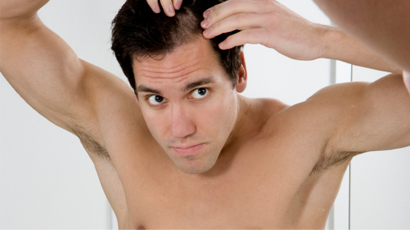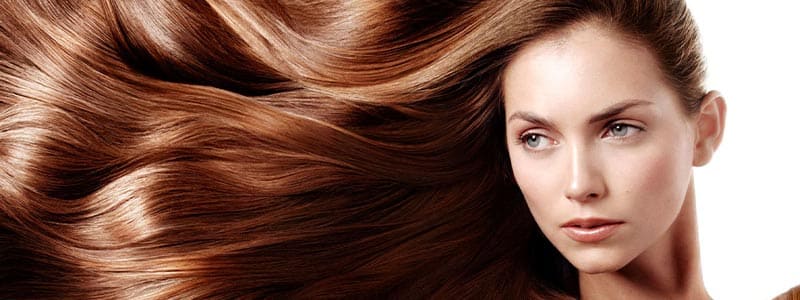What to Do For Hair Fall Control at Home
April 15, 2015

Most men prefer wearing shaved heads and without any doubt, it does suit them. But this should not convince you to sport a receded hairline. There is a lot of difference between a shaven head and a naturally bald thatch. The former adds a classy look to your personality whereas the latter adds years to your age. Even in your 20s, you start looking like an aged man in his late 30s or early 40s. Wondering, what is it that is causing hair loss at such a young age despite you maintaining a healthy hair care regimen? Don’t neglect the hormone factor! Yes, there is a link between hair loss and male hormones that most men don’t know.
Here we will share with you the link between male sex hormone testosterone and hair loss. When hair loss is caused by fluctuations in testosterone levels, it is regarded as male pattern baldness or androgenic alopecia. Three factors contribute to this type of hair loss: your genes, hormones, and age. Studies have shown that one-third of the male population around the globe begins to shed hair as soon as they cross 40 and by the time they face a retirement they have already faced some degree of hair loss.
Male pattern baldness is a type of genetic hair loss and runs in families. Androgenic Alopecia patients inherit hair follicles that are overly sensitive to Dihydrotestosterone. Androgens cause male sex hormone testosterone to convert into Dihydrotestosterone (DHT), and increased levels of DHT trigger miniaturization of hair follicles. This leads to the growth of fine hair and over time the follicle shrinks to an extent where it stops hair growth. The good news about this type of hair loss is that the hair follicles do not die off immediately. If diagnosed and addressed in the early stages, hair growth is possible.
Treatment of hair loss due to testosterone:
In its initial stages, DHT induced hair loss can be effectively treated with topical and oral medications. Two FDA-approved medicines for this type of hair loss are Minoxidil and Finasteride. The former is an over the counter topical application that stimulates hair growth, whereas the latter is a prescription oral medication that helps fight androgens and makes miniaturized hair follicles healthy. However, in its advanced stage, the hair follicles are permanently damaged and chances of hair regrowth are nearly impossible.
Hair Transplant Surgery:
In the case of permanently miniaturized hair follicles, hair transplant surgery may be worth considering. The surgery does not trigger hair regrowth. Instead, it relocates existing healthy hairs on the scalp or from other parts of the body to add desired hair density to the areas with hair thinning or bald spots.
Free consultation:
If you are also a testosterone victim, feel free to visit us or book a free online consultation. For an online appointment, fill the form below.
Dr. Cagatay Sezgin is a celebrity hair transplant surgeon with over 20 years of experience in hair transplantation and restoration. He is the First Turkish Board Surgeon to become a member of the International Society of Hair Restoration Surgery (ISHRS) and the Asian Association of Hair Transplant Surgeons (AAHRS). Moreover, he has the honor of becoming the first hair transplant surgeon in the world to perform hair, eyebrow, and beard transplantation all in one case and that too in a single session.

April 15, 2015

July 6, 2018

August 11, 2014